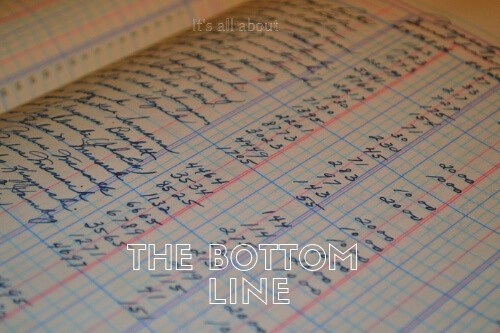
YouTube / iTunes / Spotify / Radio Public / Pocket Casts / Google Podcasts / Breaker / Overcast
Listen to ArtisanEnglish.jp posts & lesson intros here.
WotD: Bottom line
If you’re keen to improve your English, you’ve already read my post from yesterday about advice falling on deaf ears.
Therefore, it won’t be too much of a stretch for you to understand that when we give advice or make a suggestion, we often try to get to the bottom line.
What is the bottom line?
Well, I’m so glad you asked.
When someone refers to the bottom line in a conversation, they are often referring to the most critical fact.
In other words, they’re getting to the crux of the matter, whatever the issue that you’re discussing is.
Of course, the bottom line could also be the profit or loss of a company.
That’s the literal meaning.
I’m more concerned with the idiomatic meaning today.
Let’s give an example here.
My wife likes to say that women know reality and men dream.
She has a remarkable ability to get to the bottom line of any conversation we have.
Of course, that means she’s also a dream killer, but that’s my problem and not yours.
When I was a very young boy, my family, our relatives and our neighbours all had motorhomes, camping trailers or tents, and we all went camping together every weekend.
Sometimes, we’d go to a provincial park or even park in a gravel pit on the side of the highway.
Gravel pit camping is very common where I’m from.
We even have a song about it.
I’d love to do this in Japan.
I want a camper to get away from it whenever I wanted to.
It’d be great.
Then, my wife comes out with her two cents’ worth.
A camper is by the side of the house most of the time.
She also said she wouldn’t get in it.
So you see, the bottom line is when the queen speaks, the king says, “Yes, dear.”
Flesch-Kincaid Readability Test
This post is understandable by someone with at least a 6th-grade education (age 11).
On the Flesch-Kincaid reading-ease test, this post scores 80.
The easier a passage is to read, the higher the score on a scale of 0 – 100.

